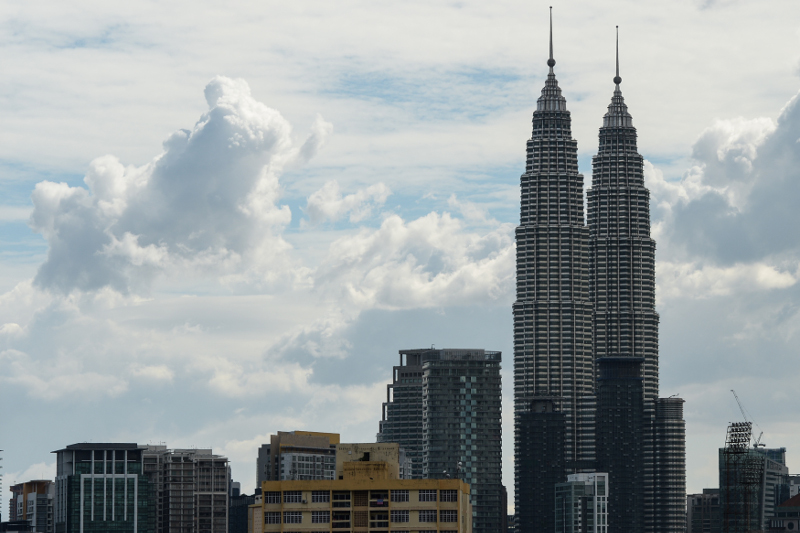KUALA LUMPUR, March 23 ― Malaysia has made good progress towards its goal of becoming a high-income nation and the income of Malaysians have also grown since the launch of the National Transformation Programme (NTP) in 2009, the federal government has said.
Malaysia narrowed its gap with the World Bank's defined amount for a high-income nation, as the country's Gross National Income (GNI) per capita reached US$9,660 (RM37,811) in 2017, the government's NTP 2017 Annual Report revealed.
“This brings the gap between Malaysia's GNI per capita and the World Bank's current high-income threshold to 20 per cent, from 33 per cent at the start of the NTP's economic transformation in 2010,” the Prime Minister's Department's Civil Service Delivery Unit in charge of the NTP said in a statement today.
In 2010, Malaysia's GNI per capita was US$8,280 in 2010, which was 33 per cent away from the World Bank's then standard of US$12,276 for high-income nations.
The World Bank's current threshold for high-income economies is US$12,236. With a GNI per capita in the category of between US$3,956 and US$12,235, Malaysia is currently listed by the World Bank as an upper middle-income economy.
The annual report launched today by Prime Minister Datuk Seri Najib Razak marks the eighth year of the implementation of his administration's NTP, a programme aimed at lifting Malaysia out of the “middle-income trap”.
“Overall, Malaysians have experienced an increase in household income between 2009 and 2016. The mean monthly household income has increased to RM6,958 in 2016 from RM4,025 in 2009, representing a compounded annual growth rate (CAGR) of 8.1 per cent.
“Significantly, the B40 income group has recorded the highest growth in household income among all income strata; with mean monthly household income for the period 2009 to 2016 outpacing overall growth in income, rising 10.2 per cent to RM2,848 in 2016 from RM1,440 in 2009,” the Civil Service Delivery Unit said.
According to the annual report, Malaysia has exceeded its Key Performance Indicator targets for the NTP's seven National Key Result Areas (NKRAs), 12 National Key Economic Areas (NKEAs) and five Strategic Reform Initiatives (SRIs) with achievements of 111 per cent, 109 per cent and 110 per cent respectively.
Malaysia recorded a GNI of RM1.32 trillion in 2017, while the 2011-2017 period saw both the creation of 2.68 million addition jobs and the recording of RM1.8 trillion worth of investments, the report showed. The initial target under the NTP for investments was RM1.4 trillion.
NTP achievements
The Civil Service Delivery Unit also highlighted the NTP's contribution to Malaysia's poverty rate falling from 3.8 per cent in 2009 to 0.4 per cent as of 2016 through programmes such as 1AZAM.
“As at the end of 2017, 1AZAM has increased the overall income of 100,420 individuals, or 91% of the programme’s monitored participants to date, by at least RM300,” the unit said.
For 2017, the unit said that the 12,300 participants who joined the e-Usahawan programme under the NTP's Raising Living Standards of Low-Income Households NKRA had generated RM24.3 million in income, also noting that RM6.31 billion of the federal cash aid BR1M scheme was paid to 7.22 million eligible families and individuals under the NTP's Addressing the Rising Cost of Living NKRA.
Among other highlights from the NTP Annual Report 2017 are both the creation of RM122.2 billion in business opportunities since 2011, with the private sector now back to driving investments with its contribution of 68 per cent of total investments as of 2017.
Malaysia has succeeded in getting 73 multinational firms to establish their headquarters or regional offices here with a commitment of 10.971 jobs since 2011, with 39 oil and gas, services and equipment (OGSE) multinational companies established here since 2011.
Also highlighted was the early completion of the Mass Rapid Transit (MRT) Line 1 (Sungai Buloh-Kajang) in July 2017 below budget, and an average daily ridership of 1.2 million for public transport.
The NTP's Rural Development NKRA also saw 6.8 million lives transformed during the 2010-2017 period, with 6,868km of roads built and upgraded, and with water and electricity made available to 354,400 households and 161,931 households respectively.
Malaysia has also become the world's third-largest producer of solar PV cells and modules in 2017, while new laws were made with the passing of the Employment Insurance System Bill 2017, Private Employment Agencies (Amendment) Bill 2017 and the Self-Employment Social Security Act 2017, the unit said.



















